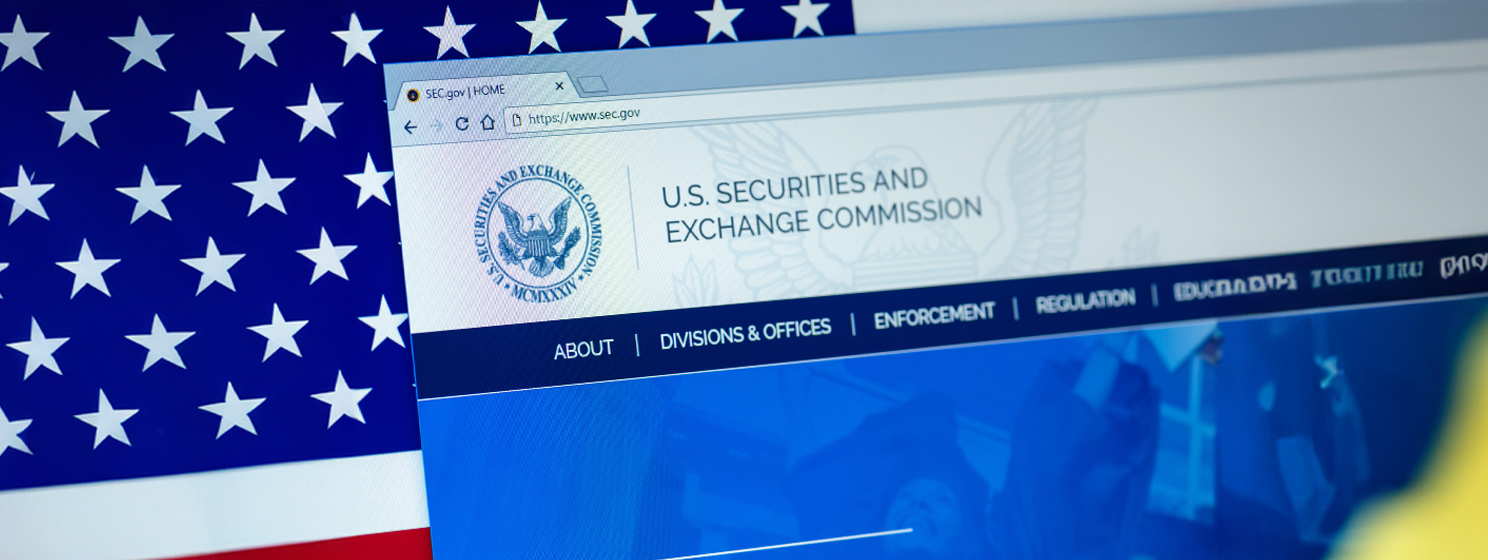|
Getting your Trinity Audio player ready...
|
The United States Securities and Exchange Commission (SEC), one of the country’s top financial sector regulators, issued a bulletin on Monday warning about the risks associated with BTC and Ether exchange-traded products (ETPs), urging investors to consider their price volatility, highly speculative nature, potential fraud and lack of regulatory oversight.
The SEC’s Office of Investor Education and Advocacy (OIEA) issued the bulletin, which provides educational resources to help investors make informed financial decisions and assists with resolving complaints related to securities and financial professionals.
In its advisory bulletin, the OIEA urged investors to “weigh carefully the potential risks and benefits if considering any investment product that provides exposure to the price of bitcoin or ether.”
It added that “investors should understand that bitcoin [BTC] and ether are highly speculative investments. This includes when exposure is gained through an exchange-traded product (ETP). Investors should consider the volatility of the price of bitcoin and ether.”
ETP refers to several types of investment products that are listed and traded on national securities exchanges. This includes exchange-traded funds (ETFs), a type of ETP that holds a basket or bundle of assets like stocks or bonds and is traded like a stock.
The OIEA explained the two current ways in which ETPs provide exposure to the price of BTC and ether. Namely, through BTC and ether Futures ETPs, which provide exposure to the price of BTC and/or ether by holding futures contracts based on the digital assets; and spot BTC and ether ETPs, a more recent product that provides exposure to the price of BTC or ether by holding the digital asset itself. The cautioning bulletin addressed the latter of these two products.
“These products seek to provide an exchange-traded investment alternative for investors interested in exposure to the underlying asset without direct investment in the underlying asset,” said the OIEA.
Adding that “spot bitcoin or ether ETPs may have unique characteristics and heightened risks compared to other investments. It is important to consider how any investment fits into your overall investment plan before investing.”
Some of these heightened risks come from where these products fall under existing securities regulations.
Current regulation
As things stand, spot BTC and ether ETPs must register their offerings and securities with the SEC under the Securities Act of 1933 and the Securities Exchange Act of 1934, respectively. This comes with certain obligations that provide a level of transparency for investors:
“As a result of these registrations, the spot ETP prepares an offering prospectus and becomes subject to periodic reporting. The spot bitcoin or ether ETP is required to disclose in its offering prospectus and periodic reports the material factors that make an investment in the trust or offering speculative or risky.”
Issuers of these spot BTC and ether ETPs are also subject to the antifraud provisions of the federal securities laws, which prohibit deceptive practices in the sale or purchase of securities.
However, spot BTC and ether ETPs are not registered as investment companies under the Investment Company Act of 1940, which means they are not subject to its requirements like ETFs and mutual funds are, such as the “legal requirements related to valuation and custody of fund assets.”
The bulletin explained that “this is true even though spot bitcoin and ether ETPs may have the term ETF in their name or refer to themselves, or be referred to by the media or general public, as ETFs.”
In other words, the SEC wanted to underline that spot BTC and ether ETPs or “ETFs”—as they’re often misleading called—do not have the same stringent requirements as other ETFs, and are thus potentially less safe and secure investments.
SEC’s advice
In order to redress this increased risk, the regulator made several recommendations for current and potential investors in BTC and ether ETPs. Investors should:
- Focus on the level of risk they are taking compared to the level of risk they are comfortable taking;
- Carefully review the risk factors and other disclosures that spot ETPs are required to make (e.g. they are required to disclose their offering prospectus and periodic reports);
- Know the risks involved: “Transacting in bitcoin and ether has been, and may continue to be, substantially driven by speculation, which can lead to heightened volatility”;
- Track the price of the digital asset in question, whether BTC or ether;
- Be aware of ‘sponsor fees,’ a fee that typically covers all the spot ETP’s operating expenses, which can have a major impact on an investment over time. “This is because each time the spot bitcoin or ether ETP pays the sponsor fee, the number of crypto assets represented by your share(s) of the ETP will decline.”
In addition, the OIEA highlighted that spot digital asset trading platforms “are not registered with the SEC, may be acting without compliance with existing regulatory requirements, and may lack the oversight of other intermediaries that are registered.”
As a result, it said there is “an enhanced potential for fraud and manipulation in the underlying market.”
The OIEA caveated its advice and warning by noting that the characteristics and design of digital assets and the distributed ledger or blockchain technology through which they are issued and/or transferred can vary significantly.
Meaning, “different crypto assets can present different risks.”
Watch: Breaking down solutions to blockchain regulation hurdles

 03-02-2026
03-02-2026 




